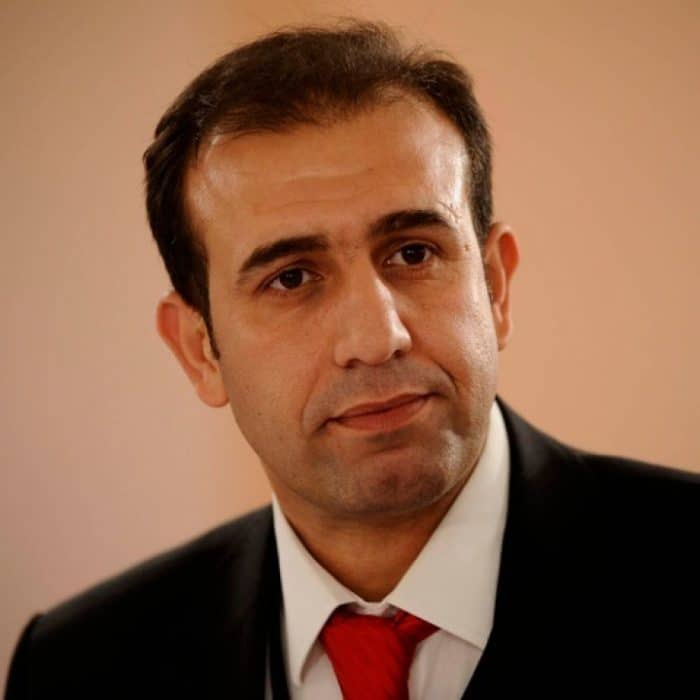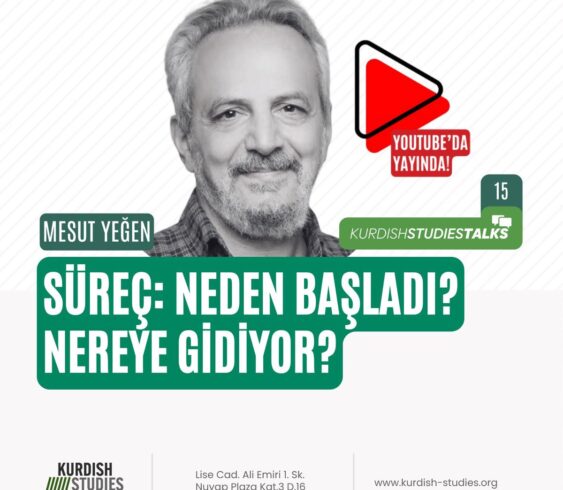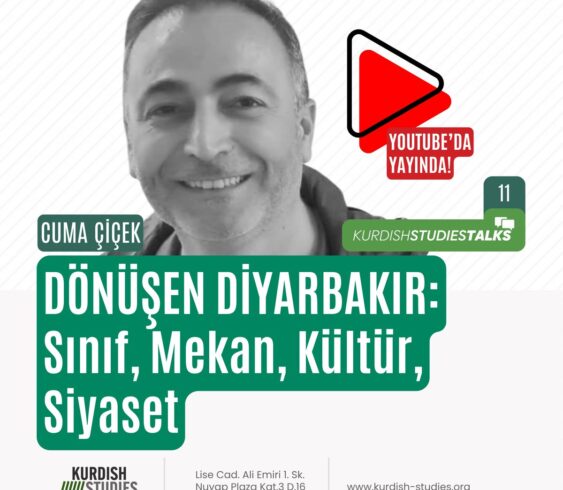📅 01/07/2025
Vahap Coşkun
The Kurdish Studies Center presented its research titled “Kurdish Barometer” to the public last weekend in Diyarbakır. The study focuses on Kurds’ perceptions of identity, culture, and politics, highlighting elements of continuity and change within these areas. The fieldwork for the research was conducted in October 2022, involving face-to-face interviews with 1,492 participants aged 17 and older.
The data reflected in the Barometer indicate signs of a socio-demographic transformation among Kurds. Kurdish migration patterns align with and resemble those of the general population in Türkiye. Only 18% of Kurds live outside the city where they were born, while 82% remain in their hometowns; settledness is increasing and migration is decreasing. Education levels are steadily rising, and the educational gap between young people and their parents is widening, leading to two main outcomes: first, Kurdish youth have gained more respect and influence compared to the past; second, there are increasing differences in attitudes between young people and their families on almost every issue.
Three identities stand out in how Kurds define themselves: Muslim (54%), libertarian/freedom-oriented (28%), and religious (25%). Considering that “freedom-oriented” is understood to include asserting Kurdish identity and rights, it can be said that this identity overlaps in some ways with that of Turks. Just as Turks see themselves as “Muslim and Turkish,” Kurds see themselves as “Muslim and Kurdish.”
12% of Kurds identify as nationalist, 12% as socialist, and 12% as conservative; 8% describe themselves as social democrat, 5% as Atatürkist, and 5% as Islamist. Therefore, mere Muslimness and Kurdishness are no longer sufficient to define Kurds; identities are diversifying, different identity clusters are emerging, while attachment to the dominant identities of the past is declining.
A New Nationalism
Although still at low levels compared to Turks, Kurds also show an increasing trend in nationalism; nationalism is higher among the youth than the elderly. Exposure to hate speech in their surroundings and public spaces may be one of the reasons for the rise in nationalism. Likewise, the idea of viewing Kurdishness as a branch to lean on, a ground to support oneself, or a handle to hold onto can also be considered a factor accelerating nationalism.
However, this rising nationalism clearly differs from the nationalism of earlier periods. There are two points that suggest we are facing a new kind of nationalism: First, it is less radical. The proportion of those who believe that results cannot be achieved through violent or non-peaceful means is increasing. Demands are expressed in a more moderate tone and with more measured formulas. For example, in the area of mother tongue rights, instead of harsh demands, reasonable and realistic proposals are put forward. This provides an important opportunity for politicians.
Second, this nationalism carries a more “people of Türkiye” character. More than half of the participants see themselves as people of Türkiye, while the proportion of those who do not is around one-quarter. The perspectives of Kurds are largely focused on Türkiye; about half have no interest in the agendas in Iraq and Syria.
Unfortunately, the number of Kurds who can use their mother tongue proficiently is experiencing a dramatic decline. Only about one-third of Kurds speak Kurdish at a good level, and another one-third speak it at an intermediate level. For two out of every five Kurds, Kurdish has no place in their lives. More than half of the children of those who speak Kurdish well are also unable to speak it well.
In short, language is a painful wound for the Kurds; therefore, the main agreed-upon demand is the removal of bans and discrimination related to the language. Two-thirds of Kurds demand that Kurdish be recognized as an official language in Türkiye; 70% call for bilingual education and public services. In this context, Kurdishness and the Kurdish issue are, in a way, confined to the Kurdish language.
The Stereotype of “Political Kurds”
There is widespread consensus on the existence of the Kurdish issue. Fifty-one percent state that there is a Kurdish issue in Türkiye, while 16% say there is no Kurdish issue in Türkiye but that Kurds themselves have problems. However, about one-fifth of Kurds believe that there is no Kurdish issue in Türkiye, that the state has done whatever is necessary for Kurds, and that continuously keeping a non-existent issue on the agenda benefits no one.
Those who recognize the existence of a problem point to the state as the source of the issue—because it does not recognize Kurdish identity and discriminates against Kurds. Fifty-eight percent of Kurds believe they face discrimination due to their Kurdish identity. Forty-two percent do not feel a sense of belonging to the country. For a solution, emphasis is placed on addressing economic inequalities, recognizing Kurdish identity, mother tongue rights, and local administrations.
The research also challenges a common stereotype. There is a widespread assumption that Kurds live and breathe politics and view every issue through a political lens; however, the data does not support this belief. Interest in politics among Kurds is not as high as presumed—only about one-third say they closely follow political developments. Furthermore, Kurds tend to avoid civil society organizations, with participation in NGO activities not exceeding 5%
Kurds approach general issues with a slightly more liberal perspective compared to the overall population of Türkiye; however, on the issue of opposition to refugees, they align more closely with the national average. Satisfaction with the current government is very low across almost all issues, with only 23% expressing approval of how the government manages the Kurdish issue. Kurds favor a pro-Western political stance and show strong support for the United Nations and the European Union. Only 15% of Kurds hold a negative view of the West, while two-thirds believe that strong relations with the West would have a positive impact on freedoms in Türkiye.
Political preferences still show the dominance of the HDP and AK Party. However, there are signs that this dual structure is partly changing. Intermediate categories are emerging, and the tendency to abstain from voting is growing stronger. As interest and expectations in politics decline, the number of people who “reluctantly” support their parties is increasing. The most admired politician, by a wide margin, is Selahattin Demirtaş. His approval rating of 6.9 out of 10 can be interpreted as him influencing not just one group but many, enjoying mainstream popularity.
Popular Culture Sphere
A Kurdish popular culture sphere is emerging. Interest in cultural activities is increasing due to reasons such as the shrinking of politics under state pressure after 2015 and the failure to achieve hoped-for political outcomes. Similar to what happened throughout Türkiye after the September 12 coup, distancing from politics is expanding the cultural domain. Cultural productions are playing an increasingly important role in preserving and developing identity. Participation in activities such as listening to Kurdish music, attending theater, watching films, and following news is on the rise.


